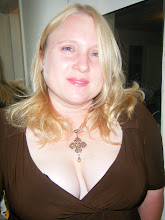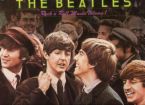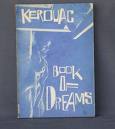 tening to: Fugitive, Indigo Girls, Swamp Ophelia
tening to: Fugitive, Indigo Girls, Swamp OpheliaBOOKS
Sylvia Plath
Letters Home: Correspondence 1950-1963
Selected and Edited with Commentary by Aurelia Schober Plath
This book made me so very sad. I put it down with a heavy heart and haven't even wanted to explore how I felt about it, for a while at least. The ending, well, it just killed me.
In this collection of letters sent home by Sylvia Plath, we are shown the subject viewed by her family, and boy, do we just fall in love with her. Sylvia was a delightful person, very mature for her age always, insightful, and talented. She was also very ambitious. In these years, we see how she sets goals for herself and her writing. In her late teens she was sending out arti
 cles to Seventeen, and was a published author of short stories before she made it into Smith College. We see her struggles through the letters, stories of dates with boys and always a dedication to her art. She agonized endlessly about her works being sent out, always with great excitement and fear all the same. She set timetables and developed relationships with editors. Her ambition was strong, and we see how fiercely she pursued her writing goals.
cles to Seventeen, and was a published author of short stories before she made it into Smith College. We see her struggles through the letters, stories of dates with boys and always a dedication to her art. She agonized endlessly about her works being sent out, always with great excitement and fear all the same. She set timetables and developed relationships with editors. Her ambition was strong, and we see how fiercely she pursued her writing goals.Once I read comments from fans about the movie based on her life (see Sylvia), and some were angry that the movie only starts around the time Sylvia meets Ted Hughes, who became her husband. Her fans were angry at the injustice, because by only looking at that part of her life, you miss all the stuff that came before, and that is the stuff that was remarkable about Sylvia. If you only saw her in relation to Hughes, you missed her achievements before him, such as the attainment of a Fullbright scholarship to earn her M.A. at Cambridge and the scores of published poems and stories she had under her belt before she married the man who would outshine her and then walk out on her, leaving her to face her demons alone.
Sylvia was determined to be a writer, and not just any writer, but a Writer, one of significance and fame. Her marriage with Ted Hughes complimented that dream, as he was also a published poet some few years older than her, and who challenged her and pushed her as a poet. Her letters talk about the help he gave her in terms of studying for her masters degree and inspiring many euphoric poems involving nature.
After I had watched the movie "Sylvia", I had been mad for three days over Ted Hughes. After this book, I can't say that was any different. However, I did understand things a lot better. I see why she had fallen in love with him, and stayed in love with him. There is so much happiness in their early years. Sometimes I wondered, while reading this book, how much happiness was worth the unhappy ending? Does the means justify the end?
And poor Sylvia, she put up such a courageous front. Her letters are always positive, and full of hope, and you wonder how this was a girl who suffered from depressive thoughts. Was it a shield to her family of her true deeper struggles? In the commentary by her mother, we learn of an episode Sylvia had where she had to withdraw from school due to mental breakdown, around the time she was rejected for a prestigious writing class.
This episode was clear in S.'s mind as something to avoid, and also perhaps she wanted to not worry her mother with. Perhaps her later struggles with Ted were something she didn't feel comfortable writing home about. Problems arose when Ted began having an affair, and S. was very jealous and sad about it. During this time, she never wrote news home about it, but it was readily apparent when her mom came to visit them for that summer. Shortly after, Sylvia Plath divorced Ted Hughes, which was very difficult for her financially. She retained full care of their two young children, Frieda and Nick. (Coincidentally, and tragically, during the time I was reading this book, news broke that Nicolas Plath,"Nick", committed suicide in Alaska).
 After this break up of her ten year marriage, she struggled to make ends meet and continue writing. It was the coldest winter in London's history. Keeping warm, she would write in the morning before the kids rose. She was extremely sick of the flu, nearly died of it during this time, but this was also the most productive few months of her life. She was considered a quite famous poet in London around this time period, and had meetings with editors and two books in publication...when the book ends abruptly with the arrival of sad news for the mother of this wonderful woman.
After this break up of her ten year marriage, she struggled to make ends meet and continue writing. It was the coldest winter in London's history. Keeping warm, she would write in the morning before the kids rose. She was extremely sick of the flu, nearly died of it during this time, but this was also the most productive few months of her life. She was considered a quite famous poet in London around this time period, and had meetings with editors and two books in publication...when the book ends abruptly with the arrival of sad news for the mother of this wonderful woman.The last letter in the book was dated February 4, 1963, and is full of assurances that things are looking up, she has plans for the future, she wants her mom not to worry about her. This last letter ends with the mention that she will see a doctor referred to her who will "help me weather this difficult time".
This is how the book ends (which is the most tragic part, but if you don't like spoilers, you don't have to read it).
On February 12, 1963, my sister received a cablegram from Ted, telling us "Sylvia died yesterday" and giving details of the time and place of the funeral service.
Her physical energies had been depleted by illness, anxiety and overwork, and although she had for so long managed to be gallant and equal to the life experience, some darker day than usual had temporaily made it seem impossible to pursue.
Sniff.
more on that later




























